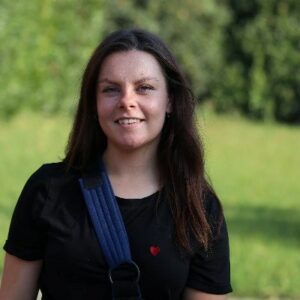
Co-creating the COMMUNICATE toolkit to support the communication of physical activity messages in secondary schools
Abstract Overview
Background: A Physical Activity (PA) message is information that is educational or persuasive that aims to increase PA levels. There is little research on communicating PA messages with adolescents in schools.
Purpose: This paper presents a co-creation study with school stakeholders from the Active School Flag (ASF) whole-of-school PA programme (WSP) in Ireland. It outlines the COMMUNICATE toolkit, its’ development and role in supporting the communication of PA in the school.
Methods: Seven ASF secondary schools in Ireland, were invited to participate in the co-creation process. Guided by a research steering group (researchers (n=2), practitioners (n=2), policymakers (n=1) and adolescents (n=2)) an iterative process of consulting and refining was followed. Three rounds of workshops were conducted to generate ideas and provide feedback on the toolkit. The first two workshops lasted one hour and the final was a full day event.
Results: Five schools participated in this study, one joined the research steering group and four participated in the co-creation workshops. The development of the toolkit through each consultation and refining stage is presented. The final toolkit incorporates resources for increasing emphasis of the ongoing WSP, planning to promote PA in the school and developing key communication skills, and is underpinned by inclusivity and diversity when communicating PA in the school.
Conclusions: This study used multi-stakeholder voices and was informed by an intra-disciplinary research steering group. The COMMUNICATE toolkit is suitable for use by secondary schools engaged in a WSP for PA. Further research is needed to test the feasibility and effectiveness of implementing this toolkit.
Practical implications: This study provides practical resources, for use by programme implementers in the school when communicating PA messages, that were developed considering student and staff voice from the outset.
Funding: The Irish Research Council Government of Ireland Postgraduate Scholarship.
Additional Authors
Name: Caera Grady
Affiliation: Physical Activity for Health Research Centre, Health Research Institute, Department of Physical Education and Sport Sciences, University of Limerick, Ireland
Presenting Author: yes
Name: Elaine Murtagh
Affiliation: Physical Activity for Health Research Centre, Health Research Institute, Department of Physical Education and Sport Sciences, University of Limerick, Ireland
Presenting Author: no
Name: Maite Verloigne
Affiliation: Department of Public Health and Primary Care, Ghent University, Corneel Heymanslaan 10, 9000 Ghent, Belgium
Presenting Author: no
Name: Kathleen McNally
Affiliation: Physical Activity for Health Research Centre, Health Research Institute, Department of Physical Education and Sport Sciences, University of Limerick, Ireland
Presenting Author: no
Name: Kwok Ng
Affiliation: Physical Activity for Health Research Centre, Health Research Institute, Department of Physical Education and Sport Sciences, University of Limerick, Ireland; Faculty of Education, University of Turku, Rauma, Finland; Institute of Innovation and Sports Science, Lithuanian Sports University, Kaunas, Lithuania
Presenting Author: no
Name: Enrique Garcia Bengoechea
Affiliation: Physical Activity for Health Research Centre, Health Research Institute, Department of Physical Education and Sport Sciences, University of Limerick, Ireland
Presenting Author: no
Name: Catherine Woods
Affiliation: Physical Activity for Health Research Centre, Health Research Institute, Department of Physical Education and Sport Sciences, University of Limerick, Ireland
Presenting Author: no

